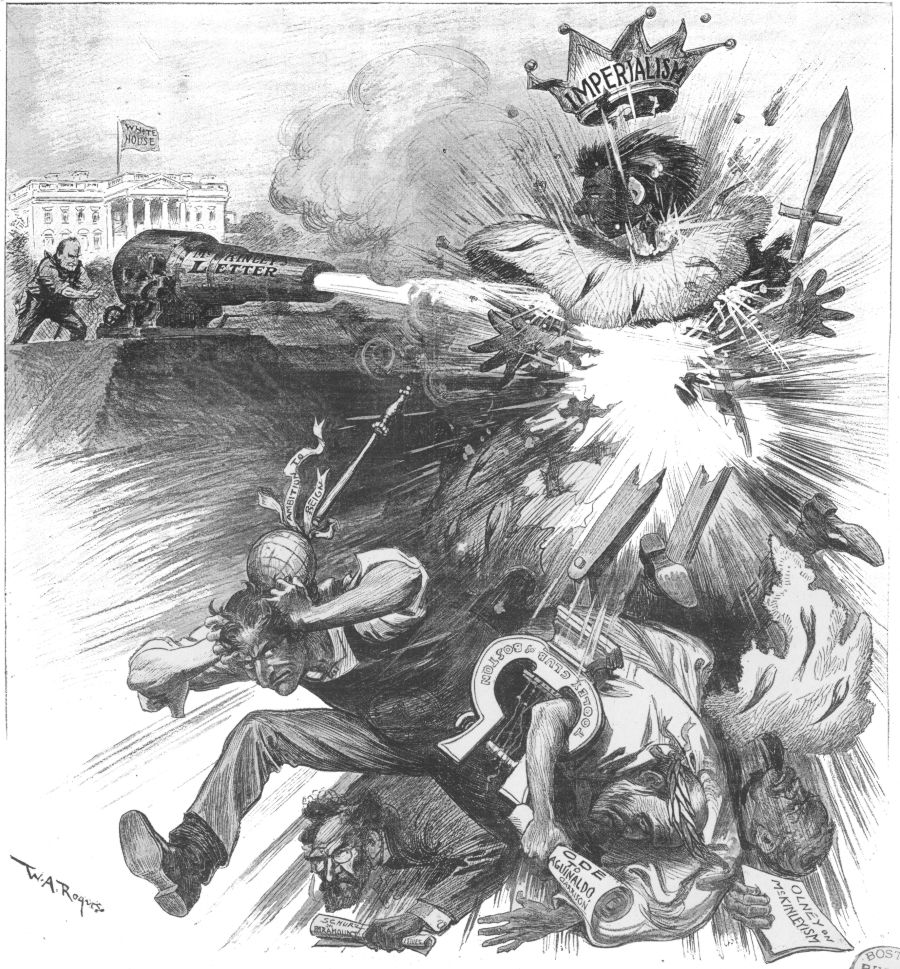

Two illustrations of a very serious, and very common, intellectual vice:
One: When Jon Monfasani write a highly critical evaluation of Stephen Greenblatt’s book The Swerve: How the World Became Modern for Reviews in History, Greenblatt responded — and this is the whole of his response —, “I plead guilty to the Burckhardtianism of which John Monfasani accuses me. That is, I am of the devil’s party that believes that something significant happened in the Renaissance. And I plead guilty as well to the conviction, regarded by my genial and learned reviewer as ‘eccentric’, that atomism – whose principal vehicle was Lucretius’ De rerum natura – was crucially important in the intellectual trajectory that led to Jefferson, Marx, Darwin, and Einstein.”
Now, if you read Monfasani’s review, you’ll discover that Greenblatt has simply ignored the detailed and careful argument that Monfasani makes in order to pretend that Monfasani has said ridiculous things. Oh yeah, Monfasani, that guy who thinks nothing significant happened in the Renaissance.
Two: Thomas Pfau, in his recent Minding the Modern, adopts a version of what I have called the neo-Thomist interpretation of history — sort of the opposite of the Whig interpretation of history — according to which a handful of late-medieval Franciscan nominalists broke down the great edifice of Thomist thought and thereby brought about the great catastrophes we call the Reformation and Modernity. Pfau has done his reading, so he knows that there are dissenting historical narratives out there, notably that of Bonnie Dorrick Kent in her 1995 book Virtues of the will: the Transformation of Ethics in the Late Thirteenth Century. Here’s how Pfau deals with Kent’s argument:
Among the most strident accounts in this regard is that by Bonnie Kent, who rejects Alasdair MacIntyre’s reading of Aquinas as having achieved a synthesis of Aristotelian and Augustinian thought and — particularly in Whose Justice? and Three Rival Versions — relying excessively on Étienne Gilson’s master-narrative, which unfolds the History of Christian Philosophy in the Middle Ages from an unabashedly Thomist perspective…. Thus Kent rejects “the tendency to describe thirteenth- and fourteenth-century thought in anticipation of developments centuries later. Knowing what will come, the modern writer easily slips into foreshadowing, dividing those masters and doctrines that were ‘properly’ medieval from those that anticipated, even helped to produce, the ultimate divorce of philosophy from theology.” Needless to say, the present argument reaffirms — albeit also seeks to demonstrate at the level of close textual interpretation — the viability, indeed the necessity, of narrative continuities in the domain of intellectual history and philosophical theology.
Two moves of note here: first, before allowing us to hear what Kent’s argument is, Pfau preemptively describes it as “strident”; second, he casts her dissent from the neo-Thomist narrative as a wholesale rejection of “narrative continuities in the domain of intellectual history and philosophical theology.” But of course absolutely nothing that Kent writes repudiates “narrative continuities.” Rather, she argues (persuasively, to my mind) that one particular claim of narrative continuity is mistaken.
So to critics of The Swerve Greenblatt says, “I guess you don’t think anything significant happened in the Renaissance.” And to critics of the neo-Thomist account, Pfau says, “I guess you don’t believe in narrative continuities in intellectual history.” Pure strawmannery, of course; it’s just sadly interesting to see it at work on what are supposed to be the Higher Levels of intellectual discourse.
